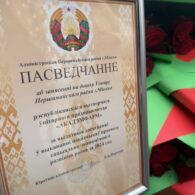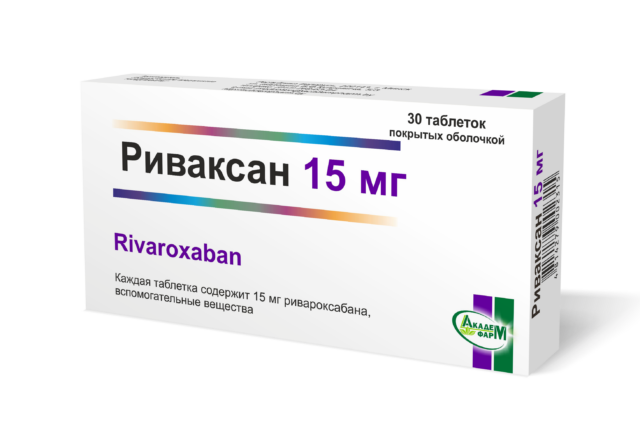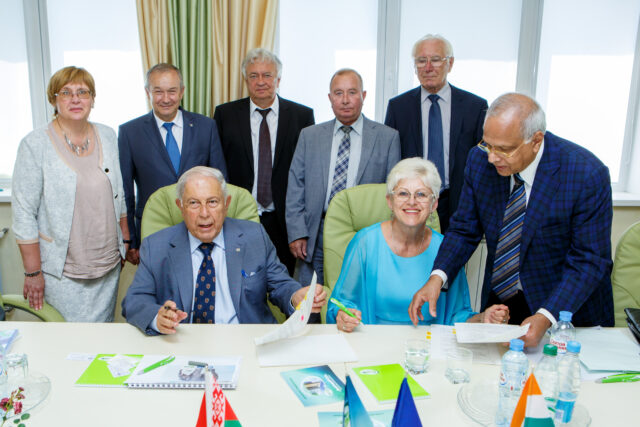
ACADEMPHARM opened its doors to partners: a tour was held for the Iskamed pharmacy chain.
19.09.2025

Delivery of Rivaxan to the National Health System of the Republic of Cuba
19.09.2025

The first batch of Rivaxan was produced in Cuba.
19.09.2025

ACADEMPHARM and Brest RUE “Pharmacy”: a training seminar at Pharmacy Museum No. 21 in Baranovichi
19.09.2025

Visit of the President of the Republic of Cuba to ACADEMPHARM
19.09.2025

ACADEMPHARM is on the Honor Board of the Pervomaisky District
19.09.2025

Spring, male hormones and health: what you need to know
04.03.2025
PREVENTION OF PROFESSIONAL BURN OUT OF TRAINERS
Agafonova М.Е., margaritaagafonova1972@gmail.com
Belarusian State University of Physical Culture, Minsk, Republic of Belarus
Resume: The article summarizes the materials of domestic and foreign scientific research on the study of the influence of the conditions of professional activity on the physical condition of coaches. A complex of specific stress factors causing professional burnout of coaches is considered. A version of the program of complex correction of physical condition for the prevention of professional burnout of sports teachers is presented.
Key words: sports, coach, professional activity, stress factors, professional burnout, physical condition, prevention, correction, resveratrol, dietary supplement “Cardivitol”.
Introduction. At present, in the conditions of fierce competition in the international sports arena, in order to achieve high results, the implementation of innovative sports training programs is required. It is known that the professional activity of a coach has specific features and is associated with a high level of physical and psycho-emotional stress. Long-term exposure to specific stress factors has a negative impact on the performance and health of sports teachers, causing a state of physical, emotional and mental exhaustion – “professional burnout”. Therefore, it is obvious that for the successful implementation of a long-term sports training program for athletes, a coach must not only be qualified and professional in his field of activity, but also have an excellent physical health and a positive attitude. Therefore, it is relevant to search for modern methods of preventing the formation of professional burnout in sports teachers.
The aim of the study is to familiarize specialists working in the field of physical culture and sports with the reasons for the development and symptoms of professional burnout in coaches, as well as with a comprehensive program for correcting the physical condition of sports teachers to prevent the formation of professional burnout.
Research methods – analysis of scientific sources of information and scientific and methodological literature dedicated to the study and solution of the problem of professional burnout of sports coaches.
Research results and discussion. Numerous studies show that the activity of sports coaches is a complex profession with specific characteristics. The work of a sports teacher takes place in conditions of psychoemotional and physical tension and under the influence of specific stress factors, which can be represented as follows [1, 3, 5, 6, 10, 12, 14, 16]:
– a high degree of personal interaction with athletes;
In the process of many years of training, constant pedagogical influence on the consciousness, will and emotions of athletes in order to form their required qualities, abilities and skills to achieve high sports results.
– psychoemotional tension of interpersonal relationships;
A competitive environment characteristic of sports (selection of athletes-pupils to the national team, control by the governing bodies, communication with specialists of the national team, colleagues, heads of sports institutions, federations and clubs). The situation is complicated by the communication tension that arises when communicating with sponsors, sports judges, athlete’s relatives, fans, and media representatives.
– a high level of personal responsibility;
Personal responsibility for the life and health of athletes in the process of many years of training and the planned sports result at international competitions determine a high level of stress in the professional activity of a coach.
– the state of overwork and overstrain of individual functional systems of the body;
It occurs during prolonged psychological and physical stress during the implementation of pedagogical activities in training sessions and competitions. The physical condition of the coach is impaired by the adaptive load and violation of the work, rest and sleep regime when going to training camps and competitions in other climatic zones.
– the presence of many social roles (mentor, friend, judge, leader);
The desire to fulfill their obligations as much as possible is the reason for irregular working hours and a lack of free time for personal life. The results of studies by sports psychologists confirm that the absence of a family and a long time spent away from family and friends is a strong stress factor that increases the emotional stress of the coach and subsequently affects his well-being.
– harmful and / or dangerous environmental conditions in the implementation of pedagogical activities in sports;
These are climatic and weather conditions for conducting training sessions and outdoor competitions (temperature, humidity, air velocity, insolation level, air chemical composition, atmospheric pressure, altitude), as well as the sanitary and hygienic state and microclimate of sports facilities (temperature , relative humidity and speed of air movement, illumination, chemical composition of air, vibroacoustics) affect not only the daily performance of sports coaches, but also affect their health in the future.
The long-term influence of the above stress factors first affects the coach’s mood and well-being and manifests itself in the form of a state of overwork. Then, prolonged overstrain of the active functional systems of the body (nervous, cardiovascular, musculoskeletal system) is one of the reasons for the development of diseases.
It should be noted that representatives of any professions, with prolonged exposure to specific stress factors, develop professional stress – a complex complex of physiological and psychoemotional reactions of the body to working conditions [1, 9]. It is obvious that the long-term impact of specific stress factors of professional activity in the field of sports has a significant impact on the coach’s health and naturally determines the development of professional stress or “burnout” – a state of physical, emotional and mental exhaustion. Currently, there are three main groups of symptoms that form the syndrome of professional burnout. Physical symptoms manifest themselves in the form of various sleep disturbances, headaches, and gastrointestinal problems. Physical and mental overwork is characteristic. There is a decrease in physical activity, an increase in susceptibility to colds and infectious diseases, overweight or exhaustion appears. Behavioral symptoms are manifested in the form of characteristic changes in behavior: complex interpersonal relationships, loss of interest in the results of professional activity, decrease in the quality of work, committing gross professional mistakes, avoidance of personal contacts, alcohol abuse, active smoking, overeating, and spending a long time on the Internet. Socio-psychological symptoms are characterized by changes in feelings: irritability, anger, aggression, increased anxiety, apathy, high emotional vulnerability. Often there is a decrease in motivation in professional activity and a reassessment of values, negative attitudes arise, and general dissatisfaction with life appears.
It has been established that the process of professional burnout develops gradually and has three stages of manifestation [9, 10, 14, 16]:
-
- Stage of deterioration of health and nervousness (overwork). The stage is characterized by a decrease in performance and increased fatigue, a decrease in concentration of attention and a deterioration in the tolerance of psychological stress. Mood swings often occur, and a state of dissatisfaction with work appears. Characterized by lack of appetite, frequent awakening at night.
- Stage of dysfunction and irritability (overexertion). The hallmarks of the stage are a significant decrease in physical performance, impaired coordination, insomnia, and lack of appetite. Unpleasant sensations and pains appear in the region of the heart, tachycardia and high blood pressure or bradycardia and low blood pressure are recorded at rest. Characterized by a state of growing anxiety and poorly restrained irritability, negative prediction, increased intolerance to other people’s mistakes.
- Stage of the disease. The stage is characterized by a sharp deterioration in general physical condition. It manifests itself in the form of general weakness and a strong feeling of fatigue against the background of high blood pressure and increased nervous excitability. It can also be in the form of general apathy, drowsiness and weakness with low blood pressure. This is characterized by a state of depression and high emotional vulnerability.
It is reliably known that performing professional duties in a state of professional burnout can lead not only to injury and exacerbation of existing chronic diseases, but also to increase the risk of myocardial infarction, acute cerebrovascular accident or sudden death, and contribute to the formation of stress cardiomyopathy [2, 3, 14] … Given the diversity and individuality of the physiological and psycho-emotional reactions of the body to long-term exposure to stress factors of professional activity, it is extremely important for a specialist to understand the significance of stress factors and the strength of their influence on health.
In the studies of P. Schaffran, P. Olusoga, devoted to the study of the problem of the formation of professional burnout among sports coaches, attention was focused on the need to train coaches in the techniques of psychological self-regulation, time management, and resolving conflict situations. Researchers have found that the use of these strategies leads to a significant reduction in emotional exhaustion [14, 16]. It is known that the effectiveness of the use of psychophysiological methods of self-regulation in combination with restorative measures aimed at normalizing the functional state of the body after the cumulative impact of occupational stress factors increases. So, overwork and the initial stages of physical overstrain, as symptoms of a developing state of “professional burnout”, can be prevented and eliminated without consequences for the body with such a complex effect. Taking into account the above facts, the relevance of the program for the correction of physical condition for the prevention of professional burnout is obvious. The correction program must be drawn up individually, taking into account the state of health, the goals and objectives of professional activity, including the following actions:
-
- Make changes and additions to the workflow (reduce the amount of information load, perform recovery training). The training load (jogging or walking at a brisk pace) is recommended to be performed daily, after the end of the working day, no later than 3 hours before bedtime, for 40 minutes with an intensity of 65% of the individual heart rate.
- Include 1 hour of personal time in your daily routine for doing your favorite thing (hobby) or communicating with family and friends.
- Restore the quantity and quality of sleep. Somnologists recommend observing hygiene and sleep patterns, increasing the time of night rest up to 8 hours, reducing information, physical and psycho-emotional stress in 1-2 hours; minimize “screen time” on the Internet during the day; practice “digital detox” – turning off electronic devices 90 minutes before going to bed [11].
- Include in the diet a sufficient amount of vegetables and fruits, probiotic fermented milk products, vegetable and animal protein.
- Observe the optimal drinking regime.
- To carry out nutritional correction of physical condition with the help of sports nutrition and dietary supplements.
According to numerous studies, it has been established that the use of food biologically active additives with cardioprotective properties and antioxidant, tonic, adaptogenic, angio- and neuroprotective effects is effective for increasing efficiency and reducing the impact of occupational stress factors on human health [13].
Considering the need for a comprehensive solution to the problem of correcting the physical condition of a trainer to prevent the formation of professional burnout syndrome, one should pay attention to the biologically active substance resveratrol. Resveratrol is a polyphenolic compound phytoalexin, which is synthesized in plants as a protective agent against infection by bacteria or fungi, drying, exposure to ultraviolet radiation and ozone. Resveratrol is found in over 70 plant species, including grapes, peanuts, mulberries, blueberries, blueberries, cranberries, and strawberries. Currently, according to the results of numerous clinical studies, the high therapeutic efficacy of this substance has been proven as an antioxidant, angioprotective, anti-inflammatory, cardioprotective and neuroprotective agent. Resveratrol also exhibits anticarcinogenic and immunomodulatory properties, slows down the aging process [4, 8, 15].
Taking into account the spectrum of confirmed pharmacological activity and high therapeutic efficacy of resveratrol, we list the available main sources of the biologically active substance:
– natural (powder of the root of the herbaceous plant of the Japanese Highlander (Latin Polygonum Cuspidatum), peel and seeds of red wine grapes, red grape wine, peanuts, lingonberries, blueberries, apple peels and plums of red varieties);
– synthesized forms of food biologically active additives containing an available form of resveratrol.
For example, the dietary supplement “Cardivitol” produced by RPUP “Akadempharm”, Belarus contains the active form of the substance trans-resveratrol and excipients. In the manufacturer’s recommended doses, the additive can be effectively used as a natural adaptogen with high antioxidant activity, neuroprotective and cardioprotective properties to prevent overstrain of the cardiovascular system and increase resistance to stress.
Conclusion
There is no doubt that the performance of official duties at a high professional level without taking into account the physiological capabilities of the body can lead not only to an exacerbation of existing chronic diseases, but also provoke the emergence of acute pathological conditions and injuries. Therefore, it is important to realize the importance of the influence of specific stress factors on the health of a sports teacher and to carry out a set of rehabilitation and preventive measures for the timely prevention of the development of professional burnout. Such an approach to one’s own physical condition will guarantee the coaches of national teams and the sports reserve effective pedagogical activity and preservation of health throughout their professional career.
Bibliography
-
- Воронова, В. Особенности проявления выгорания личности тренера в процессе профессиональной деятельности / В. Воронова, В. Ковальчук // Наука в олимпийском спорте. – 2016. – № 1. – С. 46–50.
- Земцовский, Э. В. Стрессорная кардиомиопатия вследствие хронического психоэмоционального перенапряжения. Самостоятельная нозологическая форма или дебют ИБС? / Э. В. Земцовский, Е.С Вороненко, В. И. Ларионова // Артериальная гипертензия. – 2008. – Т. 14. –№ 1. – С. 131–1136.
- Ильина, Н.Л. Специфика преодоления профессионального выгорания у тренеров национальных команд / Н.Л. Ильина // Живая психология. – 2015. – Т.2. – №2 – С.129–134.
- Кароматов, И. Д. Биологически активное вещество растительного происхождения ресвератрол – лечебные свойства (обзор литературы) / И. Д. Кароматов, Р. Р. Баймурадов, М.С. Шодиева // Биология и интегративная медицина. – 2018. – № 3. – С. 178–198.
- Мищенко, А.В. Психологические особенности эмоционального выгорания спортивных тренеров. Монография / А.В. Мищенко. – Ростов-на-Дону: Ростов. обл. ИПК и ПРО, 2011. – 211 с.
- Сагова, З.А. Анализ неблагоприятных факторов в спортивной деятельности / З.А. Сагова // Махачкала: ООО «Апробация». – 2014. – №5 – С.99–101.
- РПУП «Академфарм» [Электронный ресурс] : Биологически активные добавки. «Кардиовитол». – Режим доступа: https: //academpharm.by/catalog/kardivitol/. – Дата доступа: 29.04.2020/
- Чекалина, Н. И. Обоснование целесообразности применения полифенолов ресвератрола и кверцетина при ишемической болезни сердца и её сочетании с аутоиммунным тиреоидитом / Н. И. Чекалина, Ю. И. Мануша. Часть I // Вестник ВГМУ. – 2017. – № 5. – С. 40–48.
- Эмоциональное выгорание [Электронный ресурс] / Учреждение образования «Белорусский государственный медицинский университет». – Минск, 2020. – Режим доступа: https://www.bsmu.by/page/6/5655/ – Дата доступа: 29.04.2020.
- Carson, F. Women in Sport Coaching: Challenges, Stress and Wellbeing / F. Carson, C. McCormack, J. Walsh // Journal of Physical Education, Sport, Health and Recreation. – 2018. – Vol. 7, № 2. – P. 63–67.
- Charles, H. S. Sleep, recovery, and human performance: a comprehensive strategy for long-term athlete development // H. S. Charles, N. A. Brent / Performance Canadian Sport for Life [Electronic resource]. – 2016. – Mode of Access: https://sportforlife.ca/wp-content/uploads/2016/11/Sleep-Recovery-Jan 2013-EN.pdf – Date of Access 29.11.2019.
- Eklund, R.C. Burnout in Sport and Performance / R.C. Eklund, J.D. Defreese // Oxford Research Encyclopedia of Psychology [Electronic resource]. – 2018. – Mode of Access: http:// www.oxfordre.com/psychology – Date of Access 12.02.2019.
- IOC consensus statement: dietary supplements and the high-performance athlete / R. J. Maughan et [al.] // British Journal of Sports Medicine. – 2018. – Vol. 52. – P. 439–455.
- Olusoga, P. Coach Burnout: A Scoping Review / P. Olusoga, M. Bentzen, G. Kentta // International Sport Coaching Journal. – 2019. – Vol. 6, № 1. – Р.42–62.
- Salehi, B. Resveratrol: A Double-Edged Sword in Health Benefits. Review / В. Salehi et [al.] // Biomedicines. – 2018. – Vol. 6, № – р. 20.
- Schaffran, P. Burnout in Sport Coaches: A Review of Correlates, Measurement and Intervention / P. Schaffran, S. Altfeld, M. Kellmann / German Journal of Sports Medicine. – 2016. – Vol. 67. – Р.121–125.



